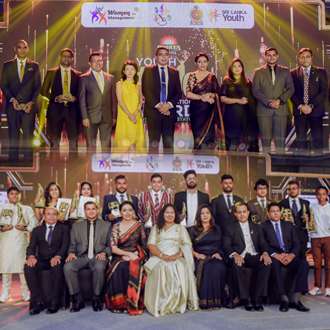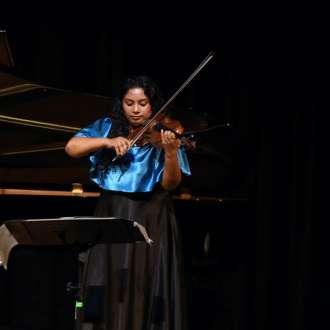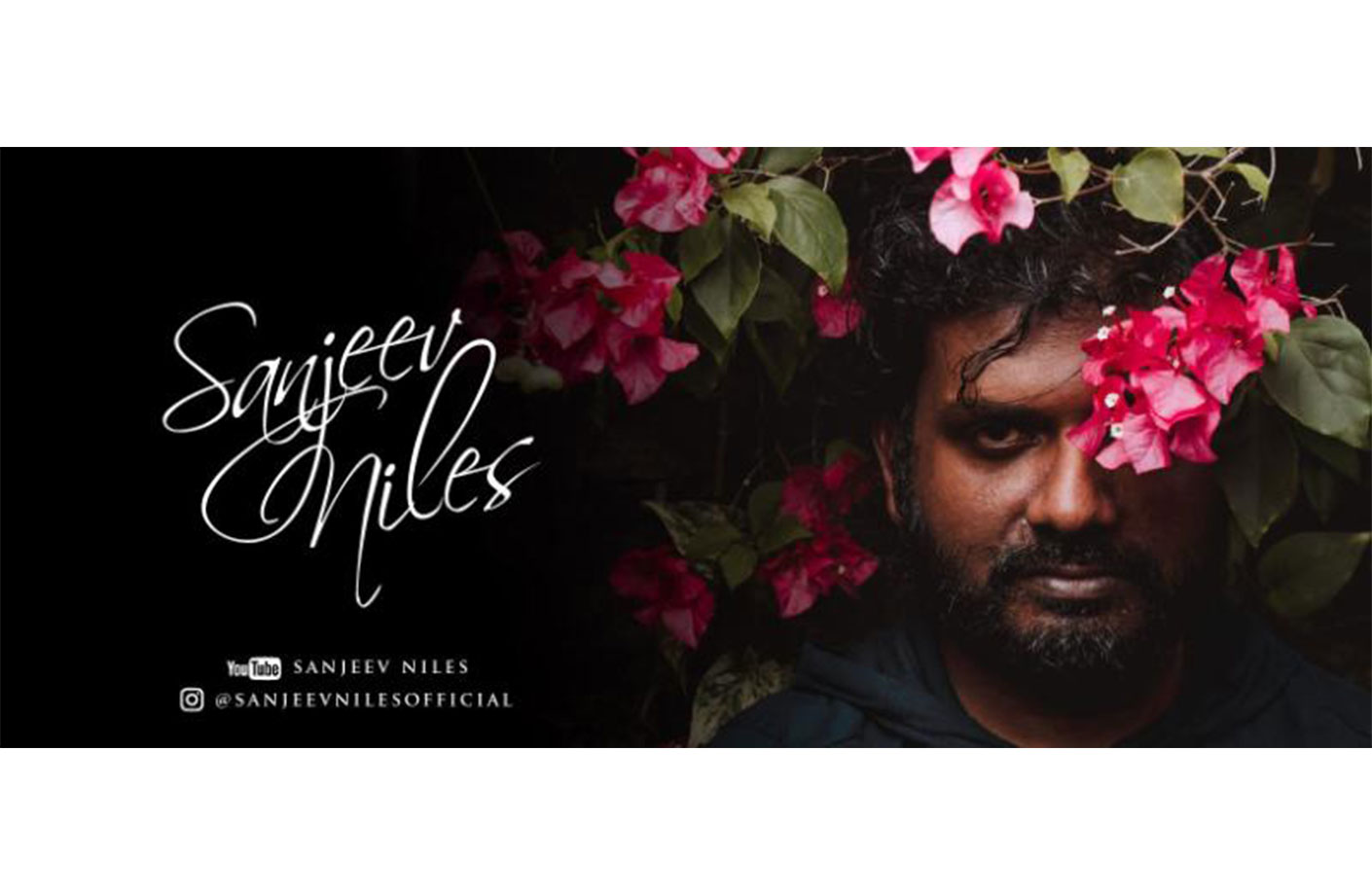
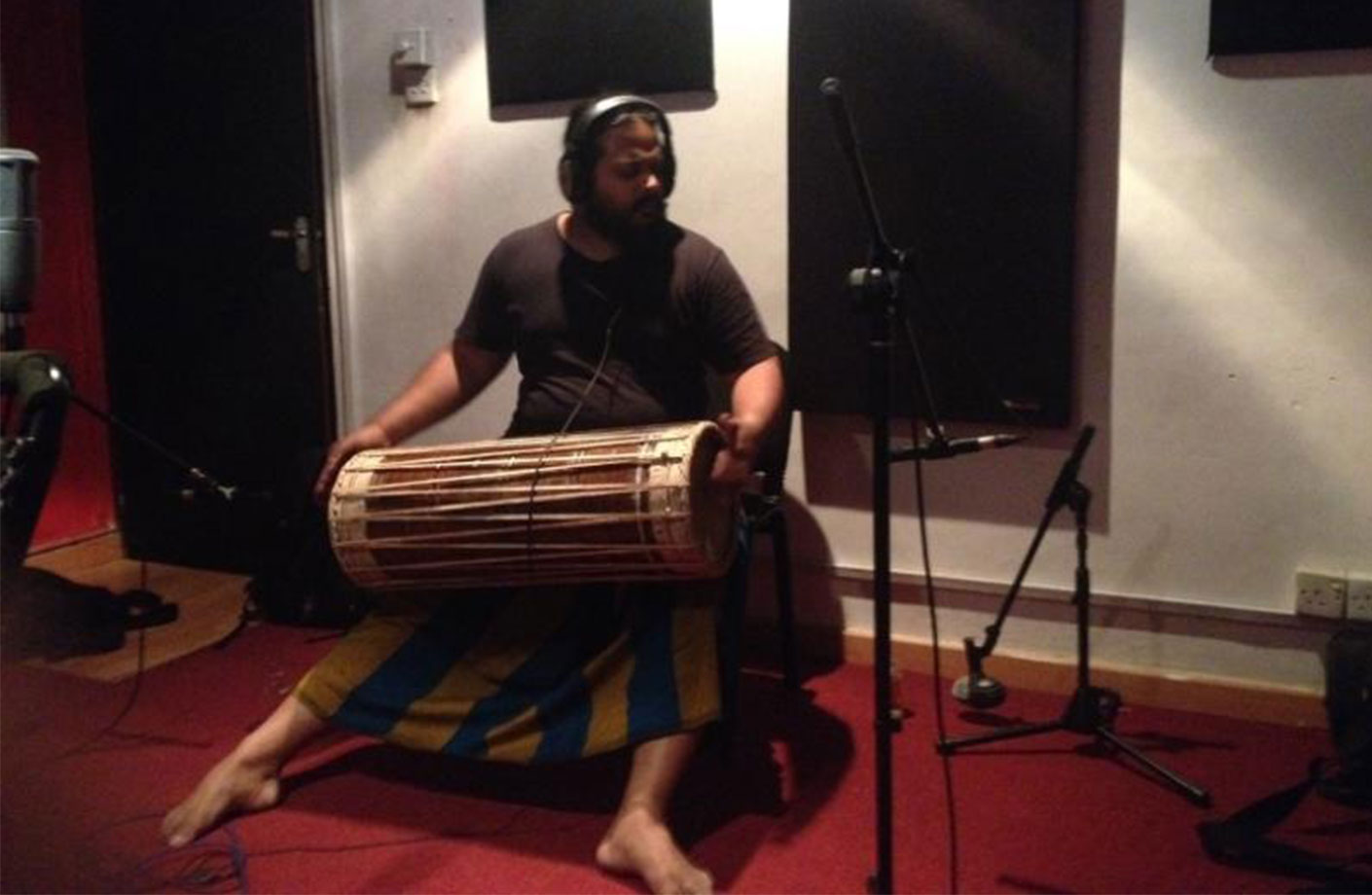
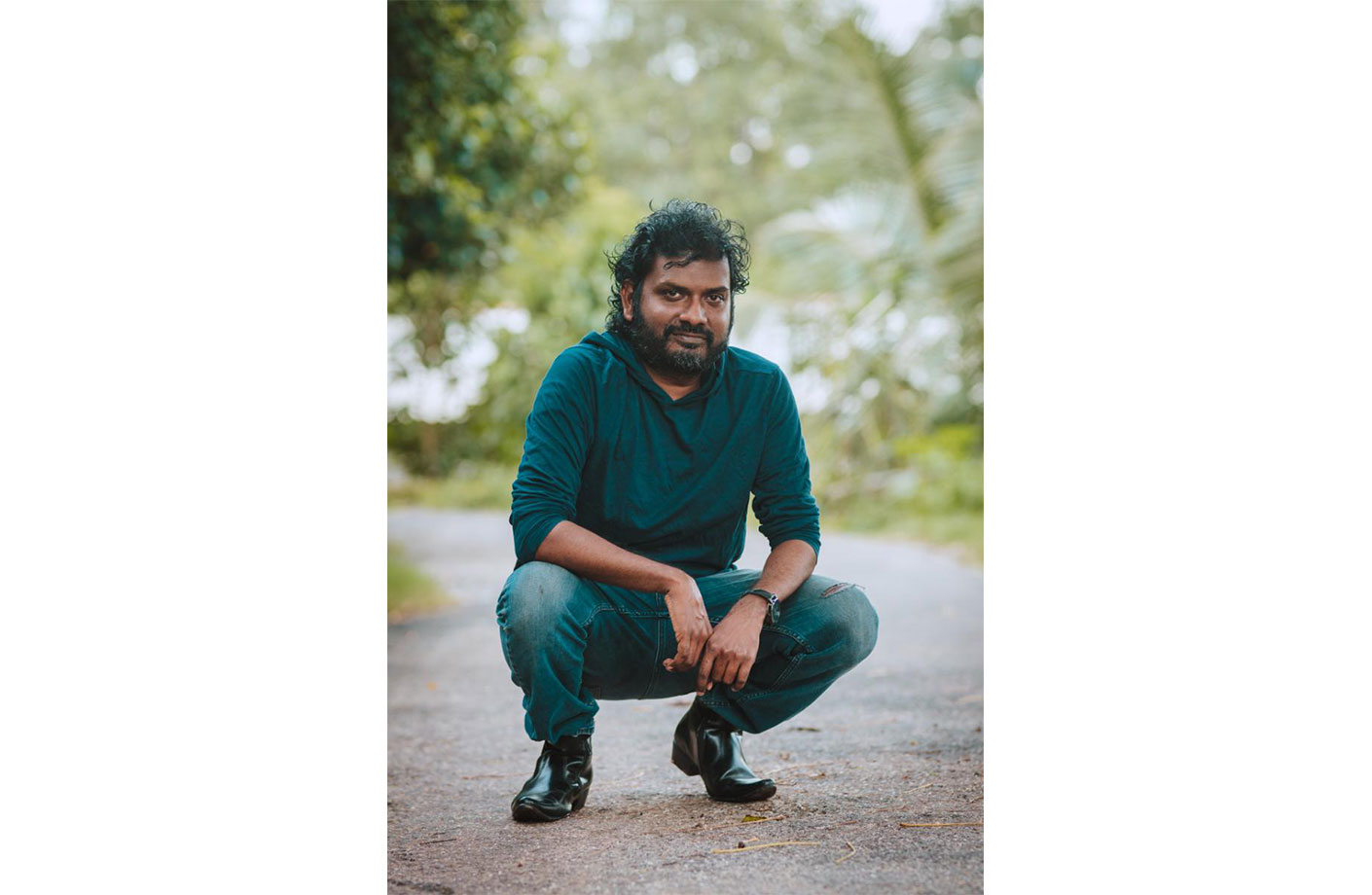
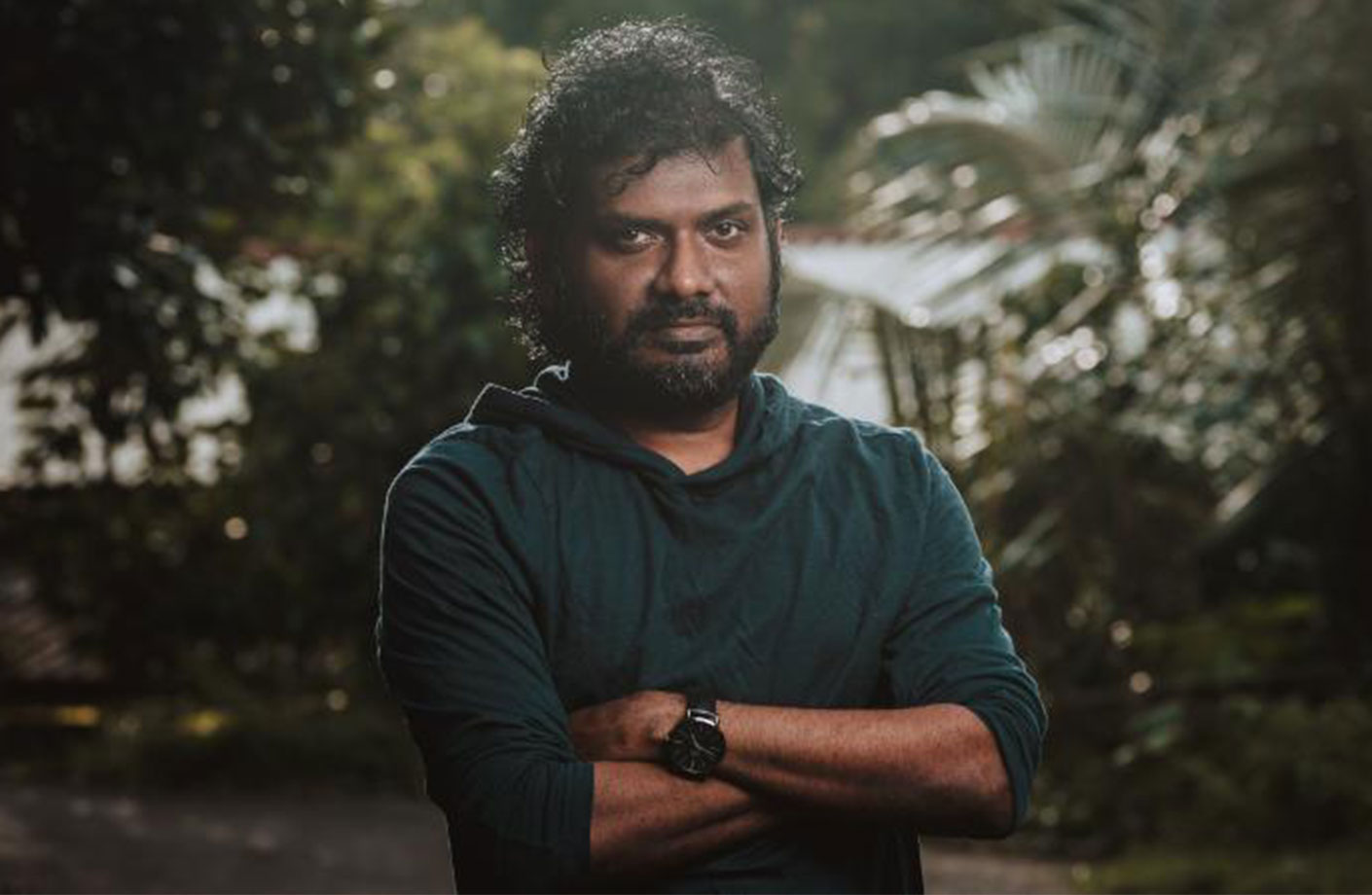
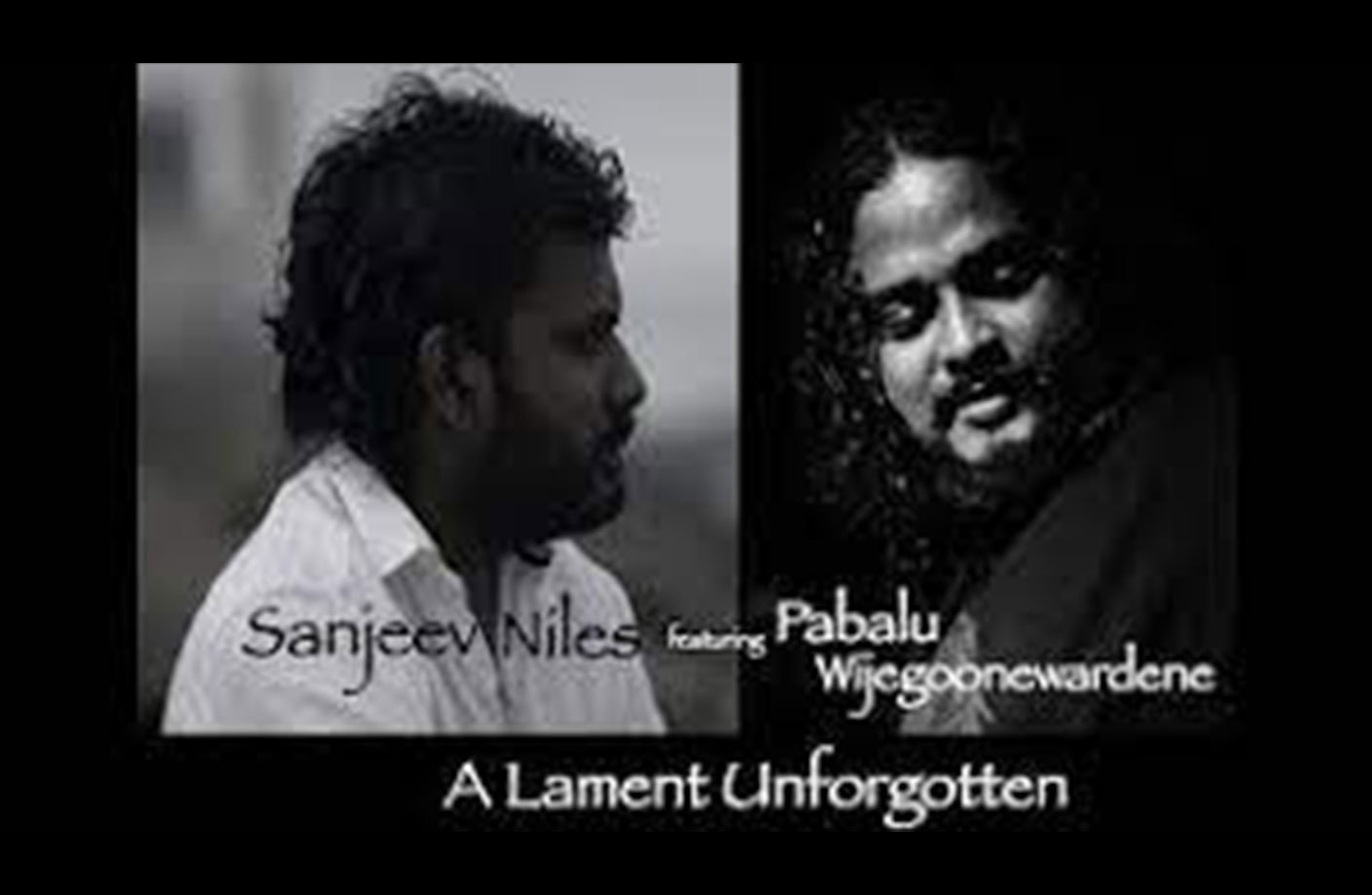
What, exactly, is a baritone? Some would recognise it as a deep, rich male voice somewhere between the higher tenor and lower bass, but with so many labels given to a baritone such as lyric, character, cantabile, Verdi, dramatic and several subdivisions of the bass-baritone, the best person to ask about being a baritone is a baritone himself!
Here to answer that question and to speak about his musical life along with his views on music today is Sanjeev Niles, a classical baritone who consistently captivates audiences with his incredible vocal talents.
Before we begin, Sanjeev, I'd like to say that I've listened to all your songs and my favourite – the one that affected me the most, emotionally – has to be 'A Lament Unforgotten' featuring Pabalu Wijegunawardane.
https://www.youtube.com/watch?v=65FYn9Fudw4
The extraordinarily moving lyrics and video paint a painful picture of the hopelessness and loss caused by the devastating Tsunami of 2004, while the combination of eastern and western music together with the Sri Lankan drums and your dramatic voice is somehow very soothing. How was it for you to remember and write about such a tragic event which destroyed entire communities?
‘A Lament Unforgotten’ was actually written after reading the book “Wave” by Sonali Deraniyagala. This book is about the deeply traumatic experience she lived through when she lost her husband and two young sons in the 2004 Tsunami. Reading the book deeply moved me at the time. I felt the thunderous rumbling of the Sri Lankan drum would be the right instrument to combine with the haunting melody to both represent the power of the waves of that day as well as the rollercoaster emotions that would run through the mind of someone who had lost their loved ones in such a tragic disaster.
Sanjeev, for those who're not familiar with your singing, how would you describe your performances, and please tell me: what exactly is a baritone?
A baritone, simply put, is a vocal tone of the male voice that has a darker and deeper sound whereas a tenor would have a brighter and lighter sound.
I perform music across a spectrum of genres while using the same tone and colour of my voice. I primarily sing music that is closer to a classical sound. There’s an increasing amount of music that is written by contemporary composers who are inspired by classical music but have significant modern influences as well.
Also, when so inspired, I perform more modern forms of pop and rock music.
I have been continuously composing my own music as well. My music is inspired primarily by classical music, and the style of singing I use in my music is very much a classical style.
Does your vocal range dictate a lot of what you can sing or would like to sing?
Yes, for sure. My vocal range would determine which songs I pick to sing as well as what key I use to compose my music. Having a wide vocal range gives you a lot of options and allows you to perform challenging music. I constantly strive to improve my vocal range through practise and study of suitable techniques.
Do you come from a strong musical background? I'm curious about what or who influenced you to become a classical singer.
My exposure to western music started with the church and with sacred music. I used to hear and sing a lot of hymns at church and at school. I was keen on singing at a very young age and was able to hold pitch and project my voice very early on. I sang in church and school choirs and at concerts, and smaller performances. As I moved into my teenage years, I was exposed to more classical music. I joined and sang with The Colombo Philharmonic Choir for many years. I also sang with the Merry An Singers for a short while. Hearing singers like Pavarotti, Andrea Bocelli and Jonas Kaufmann helped me focus on my solo singing.
This brings me to your song 'Cadence of Your Tears (Freedom's Chains)’.
https://www.youtube.com/watch?v=4lmKdHfUgeY
Featuring Suresh de Silva, frontman with heavy metal band Stigmata, this song is as complex as it is dark, and I felt personally, that it conveyed profound feelings of disquiet. Do all your lyrics contain some sort of message? Do you think your songs can touch different people in different ways?
When I write songs, both the music and lyrics represent a certain difficult experience that I went through or which I have seen someone else go through. Most people would face such situations at one point or another in their life. As an artist, I like to allow the listener to make the song their own and interpret it in a way that would impact their own life. I like the music and the lyrics to take the listener through a journey of their emotions. These emotions will often be driven by what is heaviest on the listener's mind at the time.
Various attempts have been made to combine classical music with heavy metal, but how did your fans in Sri Lanka respond to this 'new' music?
On its release, ‘Cadence of Your Tears’ was a unique collaboration, especially for that time (2015). It broke a lot of boundaries musically and gave many people a new outlook on what modern music could sound like if we ignore boundaries of genre.
In Europe, there are many Symphonic Metal bands. These bands are metal bands that use Symphonic and Classical elements in their music. With ‘Cadence of Your Tears’, the classical music was at the forefront with the vocalist from a metal band adding his vocal character and colour into it.
There were many in Sri Lanka who embraced it wholeheartedly from the word-go. There are some who were a little sceptical but over the course of time, they have come around to appreciating and embracing this unique collaboration.
Apart from the Italian pop tenor Andrea Bocelli – who I know is one of your favourite singers – whose singing do you like to listen to, and is there anyone else you would really like to collaborate with in the future?
One of my favourite singers at the moment is German tenor Jonas Kaufmann. I also like to listen to others like the late Franco Corelli. From other genres of music, one of my biggest influences is the late Warrell Dane who was the singer in an American metal band. I also love Sting and Joni Mitchell.
I would love to collaborate with many other musicians in Sri Lanka. I am working on that and hopefully, you will see some results of this over the coming year.
Talking about Andrea Bocelli, you recently covered 'Melodramma', the lead single from his album “Cieli di Toscana”, accompanied by the amazing Rochana Ramanayaka on cello. Can you describe the whole experience?
This was a tough one to pull off because there was a fully-fledged lockdown in place while we recorded it. Rochana lives in Gampaha and I live in Colombo. I had worked with him before when he played on one of my original songs (‘Let There Be Darkness’). So I knew his skill and what he was capable of. What we did was this: I recorded the other tracks (piano, organ and my voice) and sent them across to him with the sheet music for the cello part that I had written down. He then recorded the cello part at home and sent it back to me, then we got it mixed and mastered. Rochana was extremely professional and his playing skills are impeccable, so it was very easy to get done in the end.
These past months have been very challenging because of the pandemic, and I wonder how that has affected you professionally. Have you been able to work on new material?
I have already written quite a bit of original music. During lockdowns and with restrictions on concerts I thought it would be best to focus on working on material that can be released online. I also felt I needed to produce more cover music in order to enable more people to hear me and my work. This has been the focus of my work in music over the last 18 months or so. I should say it has been very gratifying as it has helped me explore work by different artists and interpret their work through my voice.
What about classical music in Sri Lanka? Does it attract a large audience? Also, are you excited about the next generation of classical singers?
I wouldn’t call it a large audience, to be honest. It’s a decent-sized audience but not one that has grown too much over the years. In order to grow, it has to attract more younger people and people who are outside the main cities. This process has not been happening as well as one would like, though there are some young people and people outside the big cities who are coming into classical music.
About the next generation of singers – what I see is that most of the younger singers are focussing more on modern forms of music. Hence, I think there is a dearth of young singers with a focus on classical music which is unfortunate but not very surprising.
Finally, Sanjeev, finishing on a fun note: were you aware that both David Bowie and Frank Sinatra were baritones, and that Freddie Mercury of the rock band Queen, although known primarily as a tenor and for his four-octave voice range, was actually a baritone? Apparently, based on speech taken from six interviews conducted in the '80s, researchers discovered the median fundamental frequency at which Mercury spoke was 117.3.
Yes, I have heard that these singers are classified as Baritones. With Freddie Mercury, it’s always interesting how he was able to carry off such a big range. I think there shouldn’t be too much focus on classifying the voice of an individual. Each singer should explore what their voice can do and how they can bring joy to themselves and their audiences through their voices.
On a separate note I would like to point out that my music is accessible via all main social media platforms for anyone who would like to explore it further:
Youtube: youtube.com/sanjeevniles
Instagram: @sanjeevnilesofficial
Facebook: facebook.com/sanjeevniles
Thank you, Sanjeev, for a very interesting interview.
#Sanjeevniles #celebrityinterview #classicalmusic #baritonesinger #sursehdesilva #stigmata #contemporarycomposers #melodies #heavyrock #rockmusic #srilankandrums #thecolombophilharmonicchoir #musicalinstruments #classicperformances #tsunami2004


